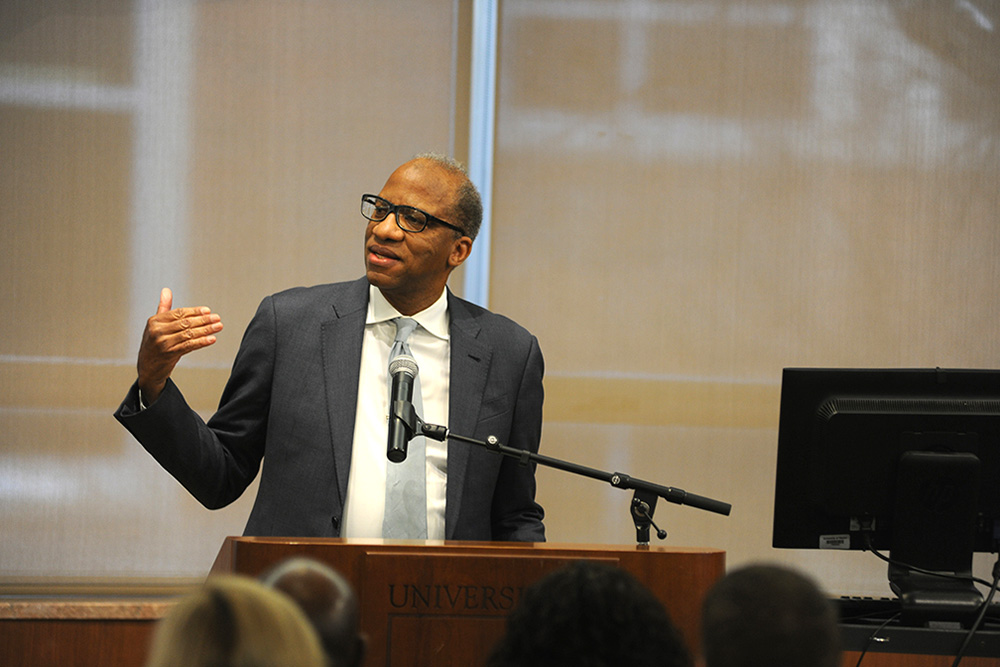A witness to history
“Now take me to my people.”
That was the statement by Rev. Dr. Martin Luther King Jr., when he visited President Richard Nixon at the White House during the civil rights era.
The people King wanted to see were the African-American employees who worked in the basement of 1600 Pennsylvania Avenue. And one of those employees was a butler.
 During the annual campus MLK prayer breakfast Jan. 16, The New York Times bestselling author and journalist Wil Haygood spoke to a full ballroom about how he met Eugene Allen and made it his mission to tell the story of Allen’s years working in the White House as a butler.
During the annual campus MLK prayer breakfast Jan. 16, The New York Times bestselling author and journalist Wil Haygood spoke to a full ballroom about how he met Eugene Allen and made it his mission to tell the story of Allen’s years working in the White House as a butler.
Haygood’s article “A Butler Well Served by This Election” was published in The Washington Post and became the inspiration of the award-winning movie The Butler, starring Forest Whitaker and Oprah Winfrey.
Haygood told the audience how he developed the idea for the story as he was covering the 2008 presidential election. He had traveled to dozens of cities and states and “had a feeling” that Obama was going to win.
It was this feeling that made Haygood want to find a White House African-American employee who had worked during segregation to show how the country had progressed under the backdrop of the first black man winning the U.S. presidential election.
After days of phone calls and asking people he knew trying to locate African-American White House employees, Haygood was given the name of Eugene Allen.
Allen served as a White House butler under eight U.S. presidents, beginning his career in 1952 and ending it as head butler in 1986. Allen saw firsthand American politics and culture evolve as various administrations filtered through the White House doors.
He was also in attendance as Obama was sworn in as the first African-American U.S. president.
“When I was in the White House, we couldn’t even dream to have a dream like this,” Haygood recalled Allen telling him.
As Haygood called on the audience to be wary of governments and leaders who “foment anger and agitation” he asserted that “there is no doubt that America is at a crossroads.”
University Provost Paul Benson emphasized the University’s calling to take on the challenges and obstacles on the journey toward equality.
“If UD is to be truly excellent, we must increase diversity, among our students, faculty, staff, administrators, and trustees,” Benson said. “That’s not a hope or a dream, and it can’t become a ‘woulda’ or a ‘shoulda’ — it’s an imperative.”
The University is holding several events this week to celebrate King and his legacy including hosting Nikole Hannah-Jones, a writer for The New York Times Magazine, who will deliver the annual Rev. Dr. Martin Luther King Jr. address at 7 p.m. Tuesday, Jan. 23, at Kennedy Union ballroom. Admission to the event is free and open to the public.